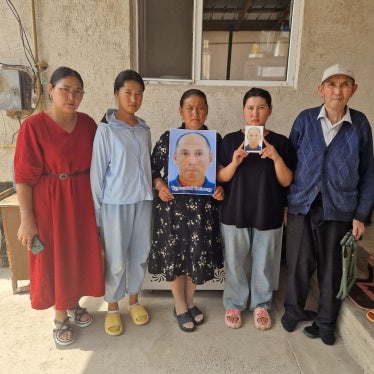Burma’s electoral commission should immediately cease threatening and intimidating the opposition National League for Democracy (NLD) party, Human Rights Watch said. The electoral commission should also drop proposals that would set limits on future election campaigning, and President Thein Sein and the Burmese government should publicly reject such proposals.
On May 22, 2014, the Union Electoral Commission (UEC) warned the NLD and its leader, Aung San Suu Kyi, that she had made illegal and unconstitutional comments at a rally in Mandalay on May 18 by saying the military should not be afraid of constitutional change in support of democratic reform. The commission announced that such statements could jeopardize the re-registration of the NLD ahead of bi-elections scheduled in late 2014 for 19 seats in the national parliament and 12 in states and regions, and nationwide elections at the end of 2015. The party replied on June 2 that Suu Kyi’s statements were in line with the constitution and political party laws.
“It’s truly scandalous that the electoral commission is threatening a political party for violating a regulation that doesn’t exist,” said Brad Adams, Asia director at Human Rights Watch. “It’s even worse that the threat is about a political speech on the future direction of the country.”
The electoral commission should immediately stop intimidating opposition parties and threatening free expression in Burma, Human Rights Watch said.
The National League for Democracy and the 88 Generation Peace and Open Society began a joint campaign in recent weeks to amend Burma’s 2008 constitution, which was passed in a sham referendum. In particular they are seeking to amend article 436, which grants the military effective veto power over constitutional amendments, and article 59(f), which bars elected members of parliament from the presidency if they have relatives with foreign citizenship. The discriminatory provision is aimed at disqualifying Suu Kyi, whose two sons have British citizenship.
The electoral commission’s chair, the former army general Tin Aye, has made numerous remarks in recent months that demonstrate a pro-military bias. In April, he defended the constitutional provision guaranteeing 25 percent of parliamentary seats to serving military officers, claiming the quota was needed to avert any future coup. He also promised that the 2015 elections would be free and fair, but would be conducted in “disciplined democracy style,” using rhetoric closely associated with past Burmese military governments.
In April, the electoral commission released a series of draft regulations that would seriously inhibit the conduct of campaigns and place restrictions on the rights to freedom of speech and movement. These proposals include prohibiting party leaders or members from canvassing in constituencies outside their home district, in a clear attempt to stop Suu Kyi from campaigning across the country. The commission has also proposed requiring parties to provide local election commission officials with details in advance of proposed speaking venues, rally and march routes, and lists of planned participants.
“How President Thein Sein and the Burmese government respond to the proposals for arbitrary limits on campaigning and to reasonable demands for constitutional reform will tell the world whether they are interested in free and fair elections or are trying to rig the process,” Adams said. “Future elections will not have an ounce of credibility if anti-democratic rules put opposition parties at a disadvantage.”





